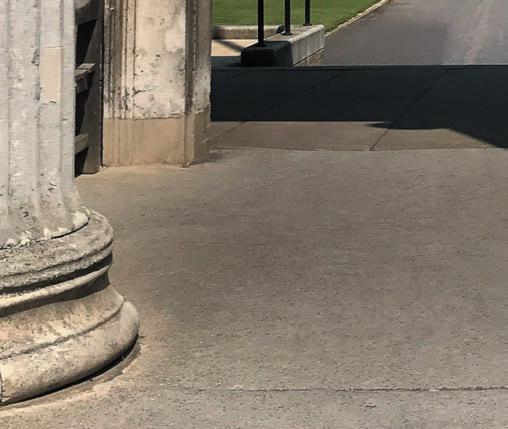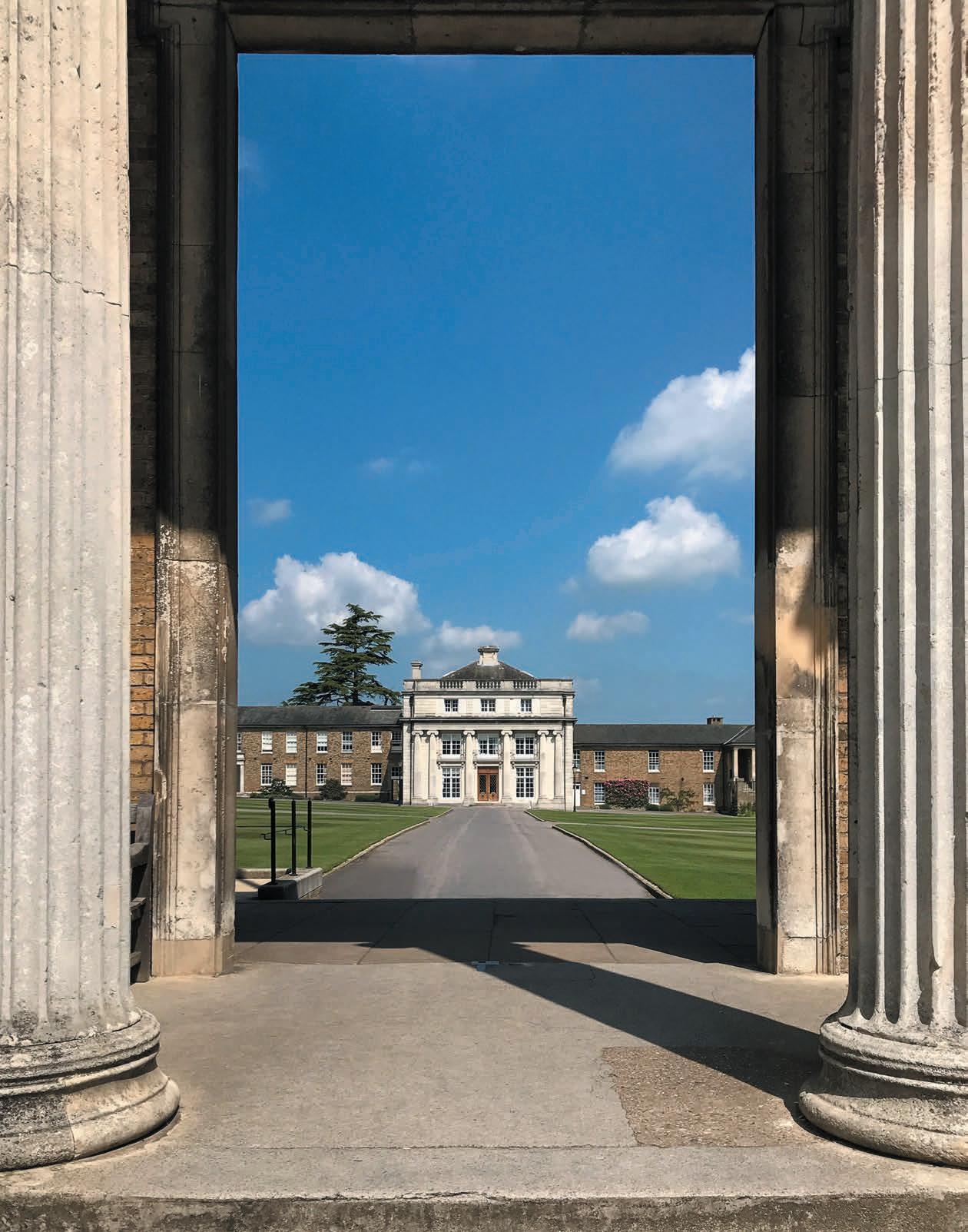
7 minute read
Critical Friends A governor’s perspective
CRITICAL FRIENDS

A GOVERNOR’S PERSPECTIVE


Charlotte Avery provides an insightful narrative on the role of a governor and underlines the importance of the contribution these key fi gures make towards the successful operation of their school.

Icurrently sit on the Governing Bodies of Haileybury, Mill Hill and also my local inter-church 11–16 comprehensive: three very different yet excellent schools, working very hard to serve their different communities.
Diversity of voice
overnin o ie enefit fro avin in ivi al fro a wide range of backgrounds, both in terms of personal and profe ional e perience c ool oar nee to re ect their constituents: governing bodies need to determine t e alance of e , en er, race an reli io affiliation represented by governors so that diversity of voice and openness of dialogue can be guaranteed to inform the very best of decision-making.
Governors may be asked to sit on committees over eein t e finance of t e c ool, overnance matters, bursaries, special projects etc, dependent on their area of interest or expertise. Before each meeting, they will receive a pack of information to digest, so that i c ion an eci ion a in can e efficient in t e meeting itself. In my case, given my role as a headmistress, I sit on the Education Committee, which is responsible for overseeing all educational aspects of the school curriculum, digital strategy, etc.
Governors, as volunteers, are generally busy people, many either working full time like me and/or with caring commitments and a range of other interests and so it is best practice to avoid asking governors to sit on too many committees!
In independent schools which are charities (which applies to the majority of independent schools), the governors are the trustees of the charity and so, collectively, have responsibility for the management and running of the organisation. Charity trustees are nonexecutive volunteers who need to have a range of skills to meet their many areas of responsibility.
An important distinction

Whilst the overall responsibility for the conduct of a school lies with the trustees, those trustees cannot and should not determine day-to-day management issues. An important distinction arises between governors seeking to acquire a good understanding of the running of the school in order to exercise effective strategic leadership, which is greatly to be encouraged, and governors seeking etaile infor ation in or er to in ence t e a to a management which, with its capacity to inhibit effective leadership, is not good practice. Governors oversee strategic matters and do not meddle in management. As a head, I am aware of both sides of this coin and the need to keep them separate!
In essence, governors determine the overall strategic aims of the school, with the process undertaken in close consultation with the school’s senior leadership who will have a detailed understanding of the school’s situation and the aspirations of its pupils and their parents. As all strategic decisions need to be discussed and agreed by the governors, they are involved in a wide range of areas, for example decisions regarding building projects, head teacher recruitment, fee levels, staff salaries, policy changes, keeping abreast of key risks facing the school etc. This means that the work of the governor is always varied and interesting – one moment you could be discussing the most recent public exam results and any plans to improve these, the next it might be plans for international expansion or an upcoming fundraising campaign.
As well as the overall strategy, governors must ensure that educational and safeguarding standards are maintained. One key governor role is that of ‘Safeguarding Governor’, whose job is much more ‘hands-on’. They need to maintain a close working relationship with the Designated Safeguarding Lead in the school and to look at documents such as the behaviour and discipline logs, (which include all matters pertaining to the Equality Act 2010), pastoral tracking systems, summary reports from counsellors, nurses, chaplains etc, as well as scrutinising the Single Central Register. This will help them to spot any emerging trends within safeguarding issues.
do not meddle in management
How do you know?
In-person visits to the school for all governors are crucial in terms of triangulating what one hears at meetings with personal observation in order to answer the fundamental question which is regularly asked by ISI inspection teams, ‘How do you know?’
The ‘How do you know’ question is of crucial importance. A key role of any governor is to act as a ‘critical friend’. For example, if you are chair of a committee, a hugely valuable aspect
of that role is to help shape agendas to draw out key information. This in turn means that the ‘How do you know?’ question is anticipated in Senior Leadership Team reports, which should clearly focus on the delivery of the school’s key strategic aims. If the agenda and accompanying papers are effectively focussed and concise, t i in t rn, will a e overnor eetin ore effi cient and questions more focused – and again this is where the skill of the governor in the chair comes in.
Your school’s executive team will certainly thank o for eepin eetin ti e effi cient, wit ccinct discussion, clear decision-making and effectively minuted action points for easy recall after the event (these are often still being referred to several months later).
Why become A GOVERNOR?
• It is a key role in a school community, and is valued as such • It provides you with an opportunity to contribute to your local community • It allows schools to access much-needed expertise – and insights – not always available from within • You can make a difference!
More depth
In many cases, governors are also assigned a ‘link area’, which gives them an opportunity to focus on a whole school activity (e.g., Marketing and Admissions) or curriculum area (e.g., History) and helps to ensure that all governors acquire knowledge and perspective in more depth than is possible just through attendance at meetings.
In my case, I’m encouraged to come into each school of which I am a governor to meet with the staff involved in my link area and to hear more about what is (and perhaps isn’t!) working well. As I am an educationalist, most of my visits are to teaching departments and it is always interesting to see how fellow teachers address learning challenges in other schools. I have attended staff INSET at one school, as well as attending the professional evelop ent trainin provi e pecifi call eac c ool for their governors. An example of such training is a forthcoming morning on Equality, Diversity and Inclusion, ahead of a full board meeting in the afternoon.
School culture
One of the elements of their role which many Governors appreciate is the opportunity to become part of the wider school community. Governors are usually encouraged to attend school events, such as art shows, school plays, speech days and the like. This provides a good opportunity to interact with other key stakeholder groups in the school community – the parent body and the pupils themselves. It is clearly helpful to understand the interests and concerns of these groups when making strategic decisions for the school as a whole. School culture is hugely complex, dynamic and constantly evolving and, given recent matters pertaining to societal activity beyond the school gates, it is crucial to understand school culture and to uphold what is good about it. At the same time, governors also need to proactively raise questions when actions, activities or events may occur which are at odds with the school ethos, values and culture.
Given the times we have been through, I feel it is particularly important at the moment for governors to make sure that they resume visiting the school in person, whether this be via link visits, committee meetings or more impromptu visits. Obviously, this has been hard in recent years, which makes governor presence even more valuable now. Staff and pupils need the opportunity to get to know who is overseeing the strategic direction of their school and, to repeat my earlier point, governors need to see what is really happening ‘on the ground’, rather than simply relying on what they are told in governor meetings.
varied and interesting
‘All hands on deck’ is certainly the rallying cry of the moment as our schools surge back from the struggles of the pandemic! Good luck to all boards out there as we continue to face some stormy weather! Stretching the metaphor, AGBIS, our lighthouse, has a wealth of information and training to support all ‘mariner’ governors currently out there on the high seas. ●
CHARLOTTE AVERY is Headmistress of St Mary’s School, Cambridge and a Governor of Haileybury College, Mill Hill School and a local 11–16 MAT. Charlotte was GSA President 201718. She’s an ISI team inspector and former lay member of the MOD’s Research Ethics Committee.








